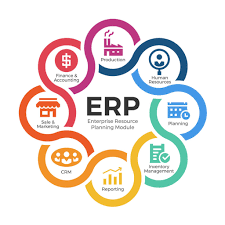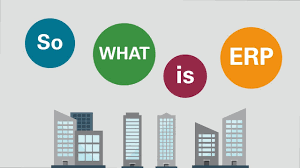What is ERP?
Enterprise resource planning (ERP) refers to a type of software that organizations use to manage day-to-day business activities such as accounting, procurement, project management, risk management and compliance, and supply chain operations. A complete ERP suite also includes enterprise performance management, software that helps plan, budget, predict, and report on an organization’s financial results.
ERP systems tie together a multitude of business processes and enable the flow of data between them. By collecting an organization’s shared transactional data from multiple sources, ERP systems eliminate data duplication and provide data integrity with a single source of truth.
Today, ERP systems are critical for managing thousands of businesses of all sizes and in all industries. To these companies, ERP is as indispensable as the electricity that keeps the lights on.


What is an ERP system?
How can these solutions manage organizations day-to-day business activities, such as accounting, finance, procurement, project management, supply chain, and manufacturing.
Enterprise resource planning systems are complete, integrated platforms, either on-premises or in the cloud, managing all aspects of a production-based or distribution business. Furthermore, ERP systems support all aspects of financial management, human resources, supply chain management, and manufacturing with your core accounting function.
ERP systems will also provide transparency into your complete business process by tracking all aspects of production, logistics, and financials. These integrated systems act as a business’s central hub for end-to-end workflow and data, allowing a variety of departments to access.
ERP Systems and software support multiple functions across the enterprise, mid-sized, or small businesses, including customizations for your industry.
